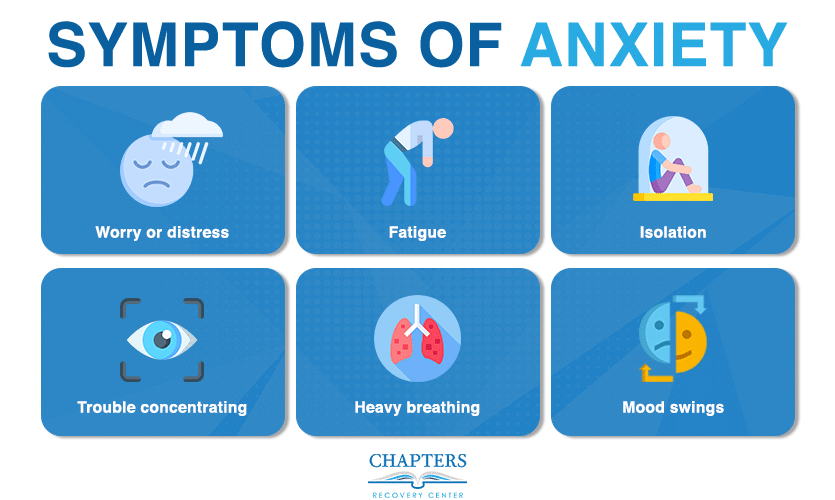Alcoholics Anonymous and Therapy
AA and Therapy, Do They Work Together?
Alcoholics Anonymous (AA) and therapy are two widely recognized approaches for tackling alcohol addiction. Both have demonstrated effectiveness in helping individuals achieve and maintain sobriety. AA focuses on peer support through its 12-Step program, while therapy addresses the psychological underpinnings of addiction.
Combining these two methods offers a comprehensive treatment plan. Therapy can help uncover and treat underlying mental health issues, while AA provides a supportive community that fosters ongoing recovery. This dual approach can enhance the chances of long-term success.
Alcoholics Anonymous (AA)
Alcoholics Anonymous (AA) was founded in 1935 by Bill Wilson (Bill W.) and Dr. Robert Smith (Dr. Bob) in Akron, Ohio. Their collaboration marked the beginning of a global movement aimed at helping individuals recover from alcoholism through mutual support and shared experiences.
Key Principles of the AA Program
The 12-Step program is the cornerstone of Alcoholics Anonymous. These steps provide a structured path for members to achieve and maintain sobriety. Central to AA’s philosophy is the Big Book, formally known as “Alcoholics Anonymous: The Story of How Many Thousands of Men and Women Have Recovered from Alcoholism.” This book outlines the principles of AA and includes personal stories of recovery.
Influence of the Oxford Group
The Oxford Group, a Christian fellowship, significantly influenced the formation of AA. Concepts such as personal inventory, confession, restitution, and service were adapted from the Oxford Group’s teachings and integrated into AA’s 12-Step framework. This spiritual foundation remains a key element of AA’s recovery process.
Contributions of Bill W. and Dr. Bob
Bill W.’s vision and Dr. Bob’s practical experience with patients were instrumental in establishing AA’s early success. Bill W. authored much of the Big Book and was a driving force behind spreading AA’s message, while Dr. Bob provided medical insight and support to those suffering from alcoholism.
If you or someone you know is struggling with alcohol addiction, reaching out for help is crucial. Chapters Recovery Center near Acton offers confidential treatment for drug & alcohol addiction, providing the assistance needed to overcome these challenges.
Understanding the steps involved in recovery is essential, especially when it comes to organizations like AA. For those interested in exploring the first step of AA for alcohol recovery, Chapters Recovery Center provides valuable insights into the history and significance of this important milestone in the journey towards sobriety.
The Role of Therapy in Alcohol Addiction Treatment
Therapy is a crucial part of holistic alcohol addiction treatment, working alongside the support provided by Alcoholics Anonymous (AA). While AA focuses on building a community, therapy deals with both the physical and emotional aspects of addiction.
There are several types of therapy that can be helpful:
- Cognitive Behavioral Therapy (CBT): This helps individuals identify and change negative thoughts that contribute to their alcohol use.
- Motivational Interviewing (MI): It encourages patients to discover their own reasons for wanting to change.
- Dialectical Behavior Therapy (DBT): This assists in managing emotions and reducing behaviors that harm oneself.
Therapy also plays a big role in addressing other mental health issues that may be present. Conditions like depression, anxiety, and trauma often happen together with alcohol addiction. By dealing with these problems, therapy helps create a stronger base for recovery.
Combining therapy with AA support can lead to a more well-rounded and effective treatment plan. While AA meetings provide support from peers and shared stories, therapy offers professional guidance that is tailored to each person’s specific needs. This two-pronged approach increases the chances of staying sober in the long run.
For additional insights into AA’s steps and how they integrate with therapeutic approaches, you might find Step 3 of AA and Step 2 of AA resources valuable. These resources provide helpful tips on practicing these steps on a daily basis, offering a deeper understanding of the program’s principles and its potential benefits on your journey towards sobriety.
Understanding the Helper Therapy Principle (HTP) in the Context of AA
The Helper Therapy Principle (HTP) is a concept that aligns closely with the values of Alcoholics Anonymous (AA). At its core, HTP posits that individuals who help others benefit therapeutically themselves. This principle is evident in AA’s foundational practices, where members gain strength and maintain sobriety through engaging in service work and supporting fellow members.
Role of Altruism in Recovery
Altruism plays a pivotal role in both addiction recovery and HTP. Helping others serves as an essential component of personal healing and growth. In the context of AA, this altruistic behavior fosters a sense of purpose and community, critical elements for sustaining long-term recovery.
Spiritual Dimension and the 12th Step
The spiritual dimension of HTP is explicitly reflected in the 12th Step of AA’s program: “Having had a spiritual awakening as the result of these steps, we tried to carry this message to alcoholics, and to practice these principles in all our affairs.” This step underscores the importance of sharing one’s journey and wisdom with others, promoting a continuous cycle of healing through mutual support.
Altruistic Healing Through Service Work
Engaging in service work within AA operates on a higher plane of altruistic healing. Members often take on roles such as sponsoring newcomers, leading meetings, or participating in outreach programs. These activities not only aid others but also reinforce the helper’s commitment to their own recovery journey.
Understanding these dynamics highlights why integrating AA’s altruistic framework with therapy can significantly enhance recovery outcomes. For comprehensive treatment options that combine these approaches, consider exploring Chapters Recovery Center, Wilmington’s top drug recovery center known for its personalized programs and highest success rates in treating drug & alcohol addiction.
Empirical Evidence for the Effectiveness of Combining AA and Therapy
Research studies highlight the positive outcomes of integrating Alcoholics Anonymous and therapy for alcohol addiction treatment. Several key findings provide empirical support for this combined approach:
- Enhanced Long-Term Recovery: Studies show that individuals who participate in both AA and therapy exhibit higher rates of long-term sobriety. This dual participation addresses both the psychosocial and physiological aspects of addiction, leading to more comprehensive recovery.
- Improved Mental Health: Research indicates that therapy can significantly reduce symptoms of co-occurring mental health conditions such as depression and anxiety, which are often prevalent in individuals with alcohol use disorder. When combined with AA’s peer support network, these benefits are amplified.
- Increased Engagement: Participants in integrated treatment programs tend to display higher levels of engagement. The structured environment of therapy complements the community support found in AA, resulting in a more committed approach to recovery.
- Better Coping Mechanisms: Therapy provides tools and strategies for coping with triggers and stressors. When these are used alongside the principles taught in AA, individuals report feeling better equipped to handle life’s challenges without resorting to alcohol.
The empirical evidence underscores the value of a multifaceted treatment plan that includes both Alcoholics Anonymous and therapy. This combination not only improves chances for sustained sobriety but also enhances overall well-being.
Case Studies: Examining Two Approaches to Integrating AA and Therapy
AA Danvers and AA Woburn serve as examples of how Alcoholics Anonymous groups can successfully incorporate therapy into their recovery programs. These organizations provide a comprehensive approach to alcohol addiction treatment, blending traditional AA principles with modern therapeutic practices.
AA Danvers
AA Danvers integrates therapy by offering:
- Group Therapy Sessions: Facilitated by licensed therapists, these sessions address the psychological aspects of addiction.
- Cognitive Behavioral Therapy (CBT): Helps members develop coping strategies and change harmful thought patterns.
- Family Counseling: Engages family members in the recovery process, fostering a supportive home environment.
AA Woburn
AA Woburn employs a similar approach with additional services including:
- Individual Therapy: Personalized one-on-one sessions with mental health professionals to tackle individual challenges.
- Trauma-Informed Care: Addresses underlying trauma that may contribute to alcohol use disorder.
- Holistic Therapies: Incorporates mindfulness, yoga, and meditation to support overall well-being.
Both AA Danvers and AA Woburn demonstrate the potential for integrating therapy within the framework of Alcoholics Anonymous, creating a robust support system for individuals on their journey to sobriety.
Navigating the Path to Recovery: Seeking Help from AA and Therapy
Accessing Alcoholics Anonymous Resources
Finding Alcoholics Anonymous resources is integral to your recovery journey. Here are some practical steps:
- Local Meetings: Visit the official AA website to locate meetings near you. Use the “Find a Meeting” tool by entering your zip code or city.
- Online Support: Many AA groups now offer virtual meetings. Platforms like Zoom and Google Meet host these sessions, providing flexibility for those with busy schedules or mobility issues.
- AA Literature: The AA Big Book and other literature are available for purchase online or at local meetings. These texts can be invaluable resources during your recovery.
Choosing a Suitable Therapist
Selecting the right therapist can significantly impact your recovery. Consider these tips:
- Experience in Treating Alcohol Addiction: Look for therapists who specialize in addiction treatment. Verify their credentials and experience in dealing with substance use disorders.
- Integration with 12-Step Approaches: It’s beneficial to choose a therapist who supports integrating therapy with the 12-Step program. This alignment ensures a cohesive treatment plan.
- Therapy Modalities: Different therapies like Cognitive Behavioral Therapy (CBT), Motivational Interviewing (MI), or Dialectical Behavior Therapy (DBT) might be suitable depending on your needs.
Utilizing these addiction treatment resources can guide you towards a balanced and effective recovery strategy, combining the strengths of both AA and professional therapy.
Contact Chapters Recovery Center
Combining Alcoholics Anonymous and therapy offers a comprehensive approach to recovery from alcohol addiction. Integrating both methods can address the multifaceted nature of addiction, providing support on emotional, psychological, and spiritual levels.
Exploring the potential of AA and therapy can lead to long-lasting sobriety. Healthcare professionals guide you through this journey while peer networks like AA offer invaluable support. Both resources work synergistically to enhance your recovery experience.
- Combining Alcoholics Anonymous and therapy offers a comprehensive approach to recovery from alcohol addiction.
- Integrating both methods can address the multifaceted nature of addiction, providing support on emotional, psychological, and spiritual levels.
- Exploring the potential of AA and therapy can lead to long-lasting sobriety.
- Healthcare professionals guide you through this journey while peer networks like AA offer invaluable support.
- Both resources work synergistically to enhance your recovery experience.
Personalizing your treatment approach is key. Everyone’s path to recovery is unique, so it’s essential to find what works best for your individual needs. Whether it’s through AA meetings or tailored therapy sessions, your journey to sobriety should be as unique as you are.
For more information on how combining Alcoholics Anonymous and therapy can benefit you, reach out to Chapters Recovery Center. Our team is here to support you every step of the way.








